It is no secret that social media has revolutionized the digital landscape. Platforms like Facebook, Twitter, and YouTube have created cost-effective environments for companies to engage with customers. Twitter, in particular, represents a social media marketing bonanza, offering a range of tools and techniques for user engagement. Among these tools, the ubiquitous “hashtag” is perhaps the most prominent. The question for digital marketers and our clients in the insurance industry, however, is whether hashtags are still relevant in 2020. In the following guide, we will explore the role of hashtags in the social media marketing toolkit, answering that burning question: are hashtags still cool?
Table of Contents
Social Media Marketing Basics: The Hashtag
Hashtags are a simple way to group tweets by topic. Originally rolled out in 2007 by Twitter, hashtags built on tagging techniques developed on other sharing platforms like Flickr and the IRC instant-messaging service. By tagging a topic with a hashtag, such as #socialmediamarketing, Twitter users can better organize and arrange their content as well as improving search capabilities for specific topics. Hashtag use expanded to other platforms, and now can be found across the social media landscape in posts from Facebook to YouTube and Instagram, only to name a few of the many online environments.
Hashtags also facilitate discovery of new topics. When hashtags are used to organize content, the content is more likely to appear in searches, allowing people to discover information about the topics they are interested in.
Hashtags tend to fill in and out of favor. Once seen as the core concept behind Twitter engagement, many social media influencers and even digital marketing teams have stopped using hashtags in posts. There has been some concern about the usefulness of hashtags – whether they really produce the visibility companies desire – and as such have declined in use in recent years.
How Useful are Hashtags?
Unfortunately for those users who shun the use of hashtags, hashtags are every bit as relevant as they were originally, and skipping their use can negatively impact user discovery of your business or organization. Adding hashtags can have important and positive benefits for engagement. According to a study of hashtags and their influence, some surprising statistics came to light:
- Instagram posts with hashtags tend to receive substantially higher engagement – to the tune of 12% or more – than those without.
- Facebook posts with a minimum of one hashtag rack up an average of 177 more interactions than posts with no hashtags.
- Twitter tweets with hashtags stick around longer than those without. Tweets without hashtags have a staying power measured in minutes (about 15 minutes, on average), while those with included hashtags remain relevant for an indefinite period.
Search algorithms on Facebook and Instagram have been optimized for hashtags, and in 2020, their use on these platforms may be even more relevant now than they were even a year ago. In social media marketing, using hashtags is fast and easy. More importantly, their use produces concrete results that can boost a brand dramatically in terms of visibility.
Leveraging the Power of Hashtags: Best Practices
We’ve all seen content littered with hashtags – tweets with a stack of hashtagged phrases, Facebook posts with overwhelming numbers of hashtags. Many people believe that the more hashtags used, the better, but this isn’t accurate. There are other misconceptions about hashtags as well, so it can be useful for digital marketers to gain an understanding of “hashtag best practices” to get the most out of this unique tool.
First, there’s a sweet spot in terms of the number and frequency of hashtags. Most digital marketing professionals agree that one or two hashtags per post is sufficient. Too many hashtags and one runs the risk of diluting the entire visibility proposition, burying the most important tags in a sea of irrelevant ones.
Next, it is vital to create and use hashtags that are useful. Key considerations include:
- Hashtags that are easy to spell and easy to remember.
- Hashtags that work naturally and don’t seem forced; in other words, tags that fit neatly with a company’s branding or story.
- Hashtags that have been researched for relevance. The best hashtags may be ones that are already in use, or can be repurposed for your social media marketing campaign. Luckily, online hashtag research tools exist for digital marketers, including Hashtagify Me.
Twitter Topics: Getting the Most Out of This New Tool
Twitter is immensely popular, with users generating on average about 500 million tweets on the platform every single day. With this much use and an onslaught of tweets, how can a company expect to stand out? Twitter itself may have the answer; the company rolled out its Twitter Topics tool in 2019. This tool gives users the ability to select and to follow specific trends, such as those topics that they are interested in or are relevant to their needs. Once the topics have been specified, more tweets related to those topics will appear in the individuals’ feeds.
The key to making Twitter Topics work? You guessed it: hashtags. Digital marketers must discover trending hashtags, then include them in tweets on the platform. This simple technique greatly improves visibility while putting relevant content into the hands of people who may appreciate it most.
Hashtags are here to stay for the foreseeable future. In social media marketing, overlooking this powerful and useful tool is a mistake. Keep researching relevant and trending hashtags, then strive to incorporate those tags into your content across social media platforms.
About Neilson Marketing Services
Since 1988, Neilson Marketing Services has been implementing innovative marketing solutions and strategies for our clients in all areas of marketing. Contact us today at (866) 816-1849 to put our talent, expertise, and vast resources to work for you. Let’s make things happen, together!
